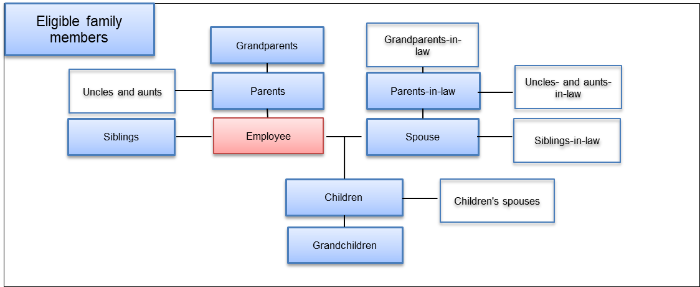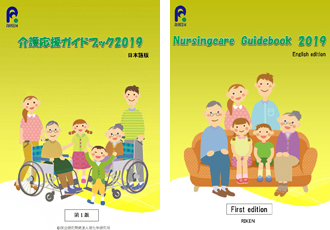Support for balancing work and family (long-term/nursing) care
Support systems
At RIKEN, we have various support systems in place to facilitate a research environment that is friendly to everyone.
* Support systems available may be different depending on employment type, etc.
Support programs related to family (long-term/nursing) care
![]() Scroll right/left to show all columns
Scroll right/left to show all columns
| Programs |
Outline | Period | Salary |
|---|---|---|---|
| Special paid leave to care for family members |
Employees can take this special leave to care for their family members, including to take them to clinics and to apply for available nursing care services. |
Employees may take a maximum of five days of special paid leave to care for family members per fiscal year. (If two or more family members require nursing care, the employee may take a maximum of 10 days of this special paid leave per fiscal year.) From April 2021, this special paid leave will no longer be given in units of half days and may be taken only in units of days or hours. (Employees on the discretionary work system may only take this special paid leave in units of days.) |
Paid |
| Restriction of overtime work and late night work | Employees may ask for restriction of overtime work and late-night work when they have family members who require nursing care. |
For permanent and indefinite-term employees, one application will maintain the restriction for one month to one year. For fixed-term employees, one application will maintain the restriction until the end of their employment contract. | - |
| Nursing care leave (Nursing care benefit program available) |
Employees may apply for nursing care leave, in units of days, to care for family members who require nursing care. A nursing care benefit may be provided to eligible individuals through the employment insurance program. |
Employees may take nursing care leave 3 times, for a maximum of 180 calendar days in total, per family member needing nursing care. The leave may be taken only in units of days. Note: Part-time workers may take a maximum of 93 calendar days. |
Unpaid |
| Changes to start and finish times | Employees may change regular start and finish times to 30 minutes or 1 hour earlier or later without changing specified work hours. |
Employees may change start and finish times in accordance with the "Supplementary Regulations on Change of Start and Finish Times During Childcare and Family Care." Note: Employees who are taking partial leave for family care are not eligible. |
- |
| Partial leave to care for family members |
Employees may take partial leave for a maximum of four successive hours after start time or before finish time in units of hours. Note: For part-time workers, partial leave shall not exceed one hour. |
Employees may apply for partial leave whenever they need it for three years after employees take partial leave for the first time. They can specify the day of the week when they apply for partial leave. |
Unpaid |
| Telework | Employees may apply for telework based on the "Supplementary Regulations for Working from Home (Telework)." | Employees may apply for telework (once a week) for a maximum of six months at a time. |
- |
| Purpose-specific flex-time system | Based on the "regulations on the purpose-specific flex-time system," employees who care for family members in need of nursing care or support are eligible to apply for the flex-time system. Employees on the discretionary work system are excluded. | Employees may apply for purpose-specific flex-time system (in monthly units) for a minimum of one month and a maximum of the number of months left in the current fiscal year (essentially, from the time of application until the end of the fiscal year) at a time. |
- |
- ※What are conditions that require nursing care? Conditions that require constant care for individuals with injuries, an illness, or physical or mental disorders for two weeks or more.
- ※Who are considered to be family members? Family members include the employee's spouse (including those who have not submitted a marriage registration but are in a common law marriage), parents, children, grandchildren, siblings, grandparents, and parents-in-law.

Support systems for research staff (researchers, engineers and technical staff) family (long-term/nursing) care
- Subsidies to hire support staff for researchers who are engaged in family (long-term/nursing) care
- RIKEN offers subsidies to help cover the cost of a support person (part-timer and temp staff) to assist a research staff member who is engaged in family (long-term/nursing) care, so that the research staff member can continue to conduct research.
- Funding support for researchers returning to work/research from interruption
- RIKEN offers research funding to support researchers returning to work/research from interruption due to life events such as caregiving, and to maintain and further improve research and development outcomes.
Nursingcare Guidebook 2019
We publish a guidebook that gives useful information about the support programs related to family (long-term/nursing) care. The latest version of the guidebook is available in Japanese and English, and can be downloaded from a page on the internal website.
 Nursingcare Guidebook
Nursingcare GuidebookContents
- 1.RIKEN initiatives to promote gender equality and work-life balance
- 2.Support program offices
- 3.Private consultations
- 4.Support programs for nursing care
- 5.Support for researchers to maintain a healthy work-life balance
Private consultations
The consultation desk managed by the Human Resources Division offers private consultations for RIKEN employees who find it difficult to continue to work due to caregiving.
Gender Equality Promotion Committee
RIKEN established a Gender Equality Promotion Committee to facilitate further efforts to realize a gender-equal environment in RIKEN. Each campus/center has a subcommittee that meets regularly to discuss and examine various issues pertaining to gender equality.
